Reading
Reading intent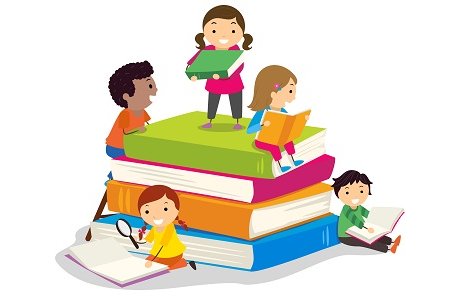
Reading lies at the heart of our curriculum at Alexander Hosea . We are dedicated to enabling our pupils to become lifelong readers and we hold reading for pleasure at the heart of everything we do. It is our aspiration that during their time at AH, our children will develop a real love of books and thirst for reading a range of genres. We allow all children access to high quality texts and inspiring learning opportunities. We want to provide children with experiences that will lead to rich language development so that at the end of the primary education with us, they are empowered with a breadth of vocabulary that they can build on their future prospects.
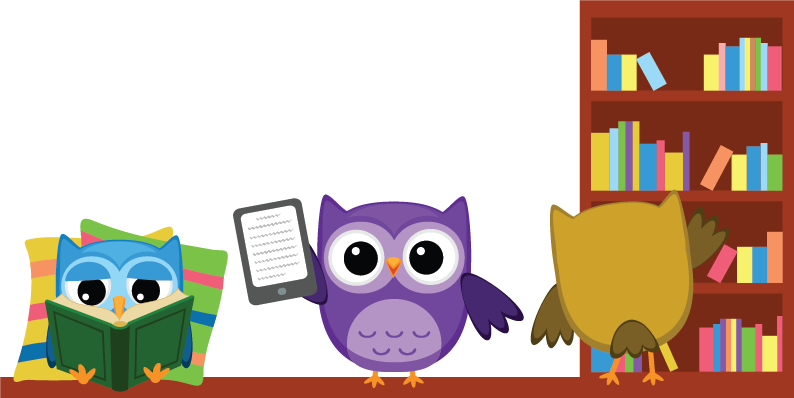
Implementation
Through the delivery of our reading curriculum, we ensure a consistent and robust teaching and learning of early reading and phonics in FS and KS1, so that pupils are able to read with increased speed and fluency and access the wider curriculum. Systematic teaching in phonics has a high priority in Foundation Stage and throughout KS1. We follow Unlocking Letters and Sounds synthetic phonics programme and children are taught the relationship between sounds and the written spelling patterns or graphemes which represent them.
Teachers draw on observations and continuous assessments to ensure that children participate in speaking, listening and reading activities that are carefully matched to their current needs. Timely interventions are planned for children who have been identified as working below the expected standard and they are given extra support. Children are provided with books that match and support their phonics development and ability.
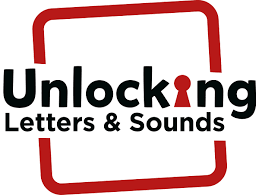 Early Reading: Unlocking Letters and Sounds
Early Reading: Unlocking Letters and Sounds
In Reception into KS1, we teach systematic synthetic phonics. We follow ‘Unlocking Letters and Sounds’ for the teaching of phonics and guided reading. The progression in Unlocking Letters and Sounds largely follows the progression contained in Letters and Sounds 2007, with some refinements and clarifications of learning elements omitted from Letters and Sounds, and updated guidance, including requirements from the National Curriculum.
The progression in Unlocking Letters and Sounds is structured to follow Phases 2 to 5 of Letters and Sounds, but some phases include additional opportunities for structured revision (‘Mastery’) and for spelling development. In 2022, we updated our reading books for early readers and purchased the full set of Ransom Reading Stars phonic high quality, fully decodable books, so that children have well-matched books to their phase of learning.
Each week, all children in Reception and Year 1 take home a fully decodable book as well as a book to share, which they choose. The children are encouraged to read their decodable book as much as possible across the week to build on their reading and fluency skills as the week progresses. The school expectation is to read 5 times a week and children are rewarded for this.
The books to share are also known as Reading for Pleasure books and these come from our previously used early reading books from Big Cat, Bug Club and Oxford Reading Tree, as well as books they can choose from the class book area and library. These books are read to/with the child by the parent to encourage a love of reading and exposure to new vocabulary.
The detailed progression for Unlocking Letters and Sounds shows the GPCs and CEW that are taught on a week-by-week basis. See below for a summary progression, covering what is learned by the children on a term-by-term basis. Regular assessment is carried out to inform teaching and ULAS interventions are put in place to help children to catch up and keep up.
‘Unlocking Letters and Sounds’ Summary Progression Unlocking letters and sounds - summary progression
Whole School Reading Provision
Throughout both KS1 and KS2, pupils have opportunities to develop and practise their reading skills daily, and we actively encourage home school links through regular communication, class incentives and whole school events. We aim to provide text and vocabulary rich environments, in order to encourage a positive culture of reading throughout all classes and to promote pupils’ enjoyment of reading. All classes have a selection of high quality texts matched to the year group and teachers read to the children on a daily basis. Through high quality teaching and learning experiences, we aim to develop skills and competence. Children develop their reading skills through VIPERS (vocabulary, inference, prediction, explanation, retrieval and summarising) and these skills are taught both discreetly and in whole class and guided reading sessions.
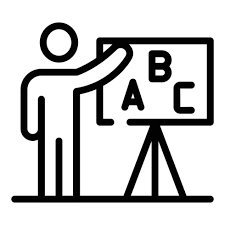 Whole class teaching
Whole class teaching
Teachers plan for the use of high-quality reading texts to teach reading in a cross-curricular way, across a wide range of genres and text types. We believe that the teaching of reading is intrinsically linked to the learning across the curriculum. Reading is at the heart of our curriculum and fiction and non-fiction texts are planned for as part of the wider project planning. Teachers choose high-quality texts that excite and inspire our pupils and support the development of wider general knowledge as well as specific knowledge and understanding linked to the projects.
Reading is developed through a variety of teaching methods including whole class reading, guided reading and individual reading.
VIPERS
We use VIPERS to support pupil’s comprehension and inference skills.
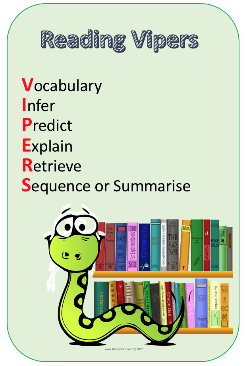
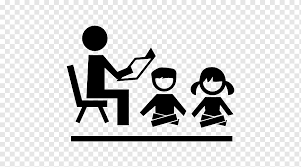 Whole class reading
Whole class reading
We recognise the importance of children being able to hear an adult read aloud and encourage this through daily whole class reading of the class reading book. This exposes them to high-quality texts, which
- broadens their known range of literature and authors;
- encourages reading for pleasure;
- contributes to deeper understanding of their project (and wider curriculum) themes;
- widens cultural capital.
Teachers choose books from a range of sources (eg www.booksfortopic.com, Book Trust etc), often linked to projects and with appropriately challenging pitch for the year group.
In Reception, there is a whole class reading book, which is shared over the week to develop vocabulary. The children use methods such as the principles of Drawing Club (Greg Botterill) to lead on from this as a stimulus for their own writing.
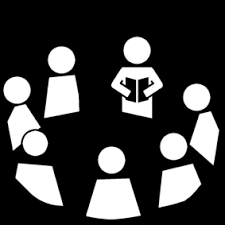 Group teaching and interventions
Group teaching and interventions
For the lowest 20% readers, who may benefit from SMART interventions to help them to keep up or catch up with development of reading skills, we use Unlocking Letters and Sounds and Herts for Learning methods. These are in addition to the whole class teaching of reading and planned so that they have the least impact on learning in other areas of the curriculum.
Features of Herts for Learning intervention:
- A range of methods are used such as: adult modelling reading prosody; choral reading; echo reading; revisit decoding strategies to tackle unknown words; text marking; paired reading; performance read and frequent feedback for improvement.
- The focus is on increasing fluency so that the readers can summaries; develop retrieval of information (How? Why? Where? Who? When?) and move onto open inferential questions with many possible responses.
- Sessions are usually planned for 2 x 20 mins per week over the course of a term (6-8 weeks). Each week, there will be Session A – modelled fluency and Session B – text discussion, with a fresh text each week.
Individual reading
To support children’s development of fluency, frequent opportunities are made for individual reading with Teachers, TAs and/or Parent Helpers. Where children are disadvantaged (eg have Special Educational Needs, are in receipt of Pupil Premium and/or are school dependent), they are prioritised for daily individual reading in school.
Choosing reading books
When the children move on from ‘Unlocking Letters and Sounds’ reading books, they progress through a transition stage of book band coloured books from Bug Club and Big Cat (Turquoise, Purple, Gold, White and Lime) before becoming free readers. As early readers, whilst they develop fluency, they are provided with a book from the school’s early reading progression as well as choosing a book to share (which they choose themselves).
Free readers have access to a wide selection of fiction and non-fiction books to choose from in classrooms and the school library. Children are signposted to books from the Book Trust pitched at their year groups. All children are actively encouraged to read at least 5 times a week.
Our physical environments are thoughtfully designed to ensure that reading spaces are inviting and accessible for all children. Both fiction and non-fiction texts are carefully selected to complement the projects which are being taught and also with the interests of the children in mind. We aim to allow children exposure to a wide range of reading genres and text types and through these build on their knowledge and understanding of the world in which they live.
Assessment:
We assess reading using Integra AREs. We use Headstart assessments or past SATs papers to support appropriate pitch and expectations and to inform teacher judgements. Teachers use the outcomes of the ARE assessments to identify strengths and weaknesses to inform subsequent planning.
Attainment in reading is measured using the statutory assessments at the end of Key Stage One and Two and attainment in phonics is measured by the Phonics Screening Test at the end of Year 1. Teachers in all year groups use reading AREs to track and plan children’s progress.
Wider reading opportunities
- Opportunities to visit and use the school library, where there is a wide range of high-quality fiction and non-fiction books.
- Author and poet visits to engage children in reading into writing activities from an inspirational literary figure.
- World Book Day events.
- Engaging with South Gloucestershire Library ‘Summer Reading Challenge’.
Impact
- Reading in our school is progressive and planned to meet the needs of all children. Through the teaching of systematic phonics, our aim is for children to become fluent readers by the end of Key Stage One. This way, children can focus on developing their fluency and comprehension as they move through the school. Assessments are carried out regularly to ensure children are accessing books of the right level and are being challenged in their reading.
- However, we firmly believe that reading is the key to all learning and the children of Alexander Hosea love reading and talking about books; enjoy discovering new characters and new worlds and value finding out new facts and information. Through their participation in our engaging, creative and vocabulary rich curriculum, the children at AH become confident, capable and enthusiastic readers.
- The outcomes of our reading curriculum ensure that the children are well-prepared to succeed in the next stage of their education and as adults in the workforce of the future.
- Children develop as confident readers, who choose age appropriate texts and talk enthusiastically about reading. They make reading choices from a wide-range of authors and understand the value of this. They can talk about authors they particularly like and why they would recommend these to others.
- Children understand how reading helps them in all areas of learning and why it is important for them in their future lives, as well as the positive impact reading can have on mental health and wellbeing.
- Children engage enthusiastically with author and poet visits and both boys and girls say that they find these inspiring.
- Children have a secure acquisition of phonics and are able to decode and blend effectively.
- Children continually develop fluency, comprehension and inference, so that they are wellprepared for the next stage of their education.
- Reading has a high profile across the school.
